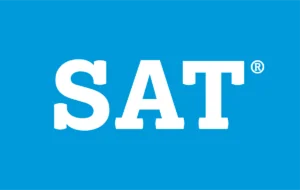Teachers expect challenges, but sometimes the toughest lessons come from students themselves. Discover the raw, real truths educators have learned from the classroom’s most demanding moments.

✅ AI Essay Writer ✅ AI Detector ✅ Plagchecker ✅ Paraphraser
✅ Summarizer ✅ Citation Generator
Key Takeaways:
- Understand Beyond Academics: Recognize and address students’ personal challenges to support their overall growth.
- Learn from Students: Be open to receiving life lessons from students as much as teaching them.
- Adapt and Accommodate: Quickly adapt teaching methods to meet diverse and changing student needs.
Teachers enter the classroom to educate, but they often leave with unexpected insights themselves. In a lively Quora community, educators are openly discussing the surprising and sometimes hard truths they’ve learned from their students. This article explores these honest exchanges, highlighting the unique and impactful lessons that students, often unknowingly, teach their teachers, emphasizing the reciprocal nature of learning in the educational journey.
The Unexpected Wisdom from Students
The heartfelt stories shared by educators reflect the profound and sometimes difficult truths they’ve learned from their students. These experiences, discussed openly within a Quora community, provide a candid look into the challenging yet rewarding nature of teaching. Here are three such stories:
Lesson in Humility and Humanity
An idealistic history teacher learned a lesson in humility and humanity from a 10th-grade student. The teacher, frustrated with the student’s continual failure to meet assignment deadlines, chastised her for excuses and lack of responsibility. Later, the teacher saw her on the news testifying in support of a bill to protect victims of sexual abuse, a bill that carried her name. This experience taught the teacher a valuable lesson in empathy and understanding, highlighting the unseen struggles students might be facing.
Early in my career, as an idealistic, demanding history teacher, I had a student (10th grade, so 15-16 years old) who was struggling to keep up with her homework and was at risk of failing. I berated her one afternoon for continuing to come up with excuses and for continuing to ask for extensions and not meet my expectations. I happened to catch her on the news later that week testifying in front of the state legislature, in support of a bill that would protect victims of sexual abuse. The bill carried her name. Taught me a small dose of humility and a large dose of humanity.
Insight into a Student’s Struggle
A first-year teacher learned about the unseen challenges faced by a bright 6th grader who never completed his homework. After staying late one day, the student confided that his family was homeless, living out of a station wagon. Moved by his situation, the teacher arranged for him to stay after school to complete his homework and provided snacks and drinks. Eventually, the teacher’s efforts led to the student’s family receiving subsidized housing. This experience was a stark reminder of the personal and economic hardships students might endure outside the classroom and the difference a caring educator can make. Here’s what Michael DiBiasio, a retired Public School math teacher, has got to tell:
I was a first-year teacher with a 6th grade class. I had one very bright student who never did his homework…He responded that he and his family were homeless…I told him he could stay after with me each day to complete his work in a warm, safe classroom…A few days later, my superintendent paid me a surprise visit…This student wrote him personally with a request to finish out the year in my class.
Empathy Over Assumptions
Another teacher learned about the importance of empathy and not jumping to conclusions through a student who frequently arrived late to class. Initially irritated by the perceived disrespect, the teacher’s perspective changed after learning the student was caring for a terminally ill mother. This revelation led to an agreement allowing the student to come late when necessary, ensuring she wouldn’t rush dangerously. It was a poignant reminder that educators might not fully grasp the burdens their students carry and the importance of understanding and flexibility. Mel Blumberg, a Professor of Management Emeritus, Penn State Harrisburg, shared his story:
There was a young woman in one of my college classes who was frequently late…she apologized about the frequent lateness. Then said, ‘I’m at my wit’s end, my mother is dying of cancer and can’t be left alone…We made a deal; she could come late when she needed to, and would not speed to get there.
In each story, educators were reminded that students are individuals with complex lives and challenges. They learned to look beyond the surface, understand the personal contexts of their students, and adapt their teaching methods to accommodate and support them. These experiences highlight the unpredictable and nuanced nature of teaching, where educators are not just imparting knowledge but also learning valuable life lessons themselves. Through understanding, patience, and empathy, teachers can positively impact their students’ lives, far beyond the academic curriculum.
Follow us on Reddit for more insights and updates.





Comments (0)
Welcome to A*Help comments!
We’re all about debate and discussion at A*Help.
We value the diverse opinions of users, so you may find points of view that you don’t agree with. And that’s cool. However, there are certain things we’re not OK with: attempts to manipulate our data in any way, for example, or the posting of discriminative, offensive, hateful, or disparaging material.